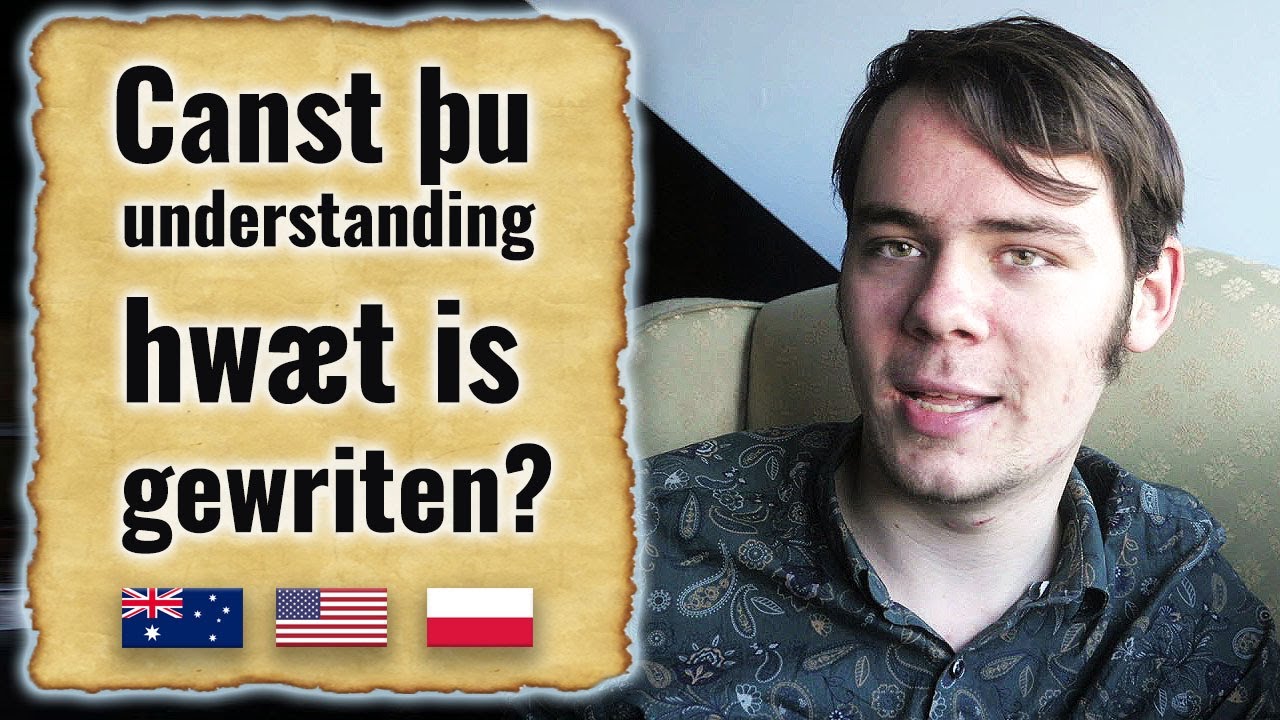Ecolinguist
Do you understand the Old English language? In this video, American, Australian, and Non-Native English speaker from Poland try to understand Old English by reading sentences written in Old English. It’s part of the Language comparison series on my channel, in which we explore the mutual intelligibility phenomenon between closely related languages.
🤓It’s Part 2 of our Old English challenge.
👀Watch Part 1 here: https://youtu.be/sEaRBAT0TLs
Contact details for the guests of the show:
Simon Roper
🏴🇬🇧🎥 Youtube Channel → @Simon Roper
📱Instagram: @simon.roperr
Christian Saunders
🇦🇺🎥 Youtube Channel → @Canguro English
📱Instagram: 📱Instagram: @canguroenglish
Rico Antonio
🇺🇸🎥Youtube Channel → @Bilingue Blogs
📱Instagram: @bilingueblogs
Support my Work: @Ecolinguist
My name is Norbert Wierzbicki and I am the creator of this channel.
☕️Buy me a Coffee → https://www.paypal.me/ecolinguist (I appreciate every donation no matter how big or small🤠)
📱Instagram: @the.ecolinguist
🤓🇵🇱👨🏫 Book a Polish Lesson with Norbert → http://ecolinguist.com/ (language conversation practice)
🎥Recommended videos:
🤓 Latin Language Spoken | Can Spanish, Portuguese, and Italian speakers understand it? → https://youtu.be/C77anb2DJGk
🇫🇷🇮🇹🇧🇷🇲🇽French Language | Can Italian, Spanish and Portuguese speakers understand? → https://youtu.be/sqxgY6c6mqs
🇮🇹🇧🇷🇲🇽Italian Language | Can Spanish and Portuguese speakers understand? → https://youtu.be/VCtg1upDmWs
🇧🇷🇲🇽🇮🇹Brazilian Portuguese | Can Spanish and Italian speakers understand? → https://youtu.be/buqqqVNQHHI
🎥Romance Languages Comparison Playlist → https://www.youtube.com/playlist?list=PLQJ3IAEluGMjuLXkJ3M3zbdutw38BInsv
🎥Slavic Languages Comparison Playlist → https://www.youtube.com/playlist?list=PLQJ3IAEluGMjf6eO2qr2XTbA16V9U4p6q
🤗 Big hug for everyone reading my video descriptions! You rock! 🤓💪🏻
#English .
